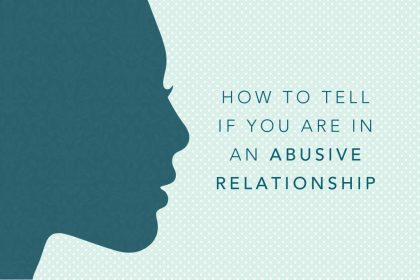The 10 giveaway signs of a toxic person – and how to handle them
Toxic people are everywhere – they’re hiding at work, in baby groups, in cafes, even in your own family – just waiting to cause havoc in your life. But how can you spot a toxic person? And how do you minimise their damage?
We’ve all come across them at one point or another in our lives. The colleague who seems to have it in for you, the friend who always has a drama they want to involve you in, the difficult neighbour, or the family member who wears you out every time you see or speak to them.
What all these people have in common is toxicity – they are unpleasant, draining and just hard to spend time with. Like a poison, they do nothing to enrich your life and career, or make it any easier or more successful.
It’s important to protect yourself from toxic people
In fact they usually do the opposite. They suck the joy out of work, drag out assignments unnecessarily, play political games, give you the run around as clients and make awkward, hard-to-please customers.
Like many things in life, being forewarned that someone is potentially a toxic person to deal with is forearmed. You can prepare strategies to deal with them, or minimise your contact with them.
It also enables you to protect yourself where necessary. Knowing someone may probably be picky and even underhand, you can ensure you follow all procedures to the official letter, get back up in where necessary and make sure you get every instruction or agreement in writing.
Do you have a toxic friend? Discover the nine warning signs you might unknowingly be in a toxic friendship – and what to do about it.
Here’s what we cover in this investigation into the giveaway signs of a toxic person:
- The 10 giveaway signs of a toxic person
- Three psychological warfare techniques toxic people use
- Are toxic people narcissists?
- Do you work with (or for) a narcissist?
- Escaped a toxic relationship? Here’s advice to help you
The 10 giveaway signs of a toxic person
So just how do you spot a toxic person? Luckily there are a number of easy-to-spot signs that, when you’re aware of them, enable you to pick them out a mile off.
According to WebMD, “A toxic person is anyone whose behavior adds negativity and upset to your life.” And while toxicity in itself isn’t considered to be a mental disorder, there may be underlying mental issues in people who exhibit toxic behaviours, including a personality disorder.
Let’s look at the top 10 giveaway signs of a toxic person:
- They’re selfish
- They need to be right
- They’re surrounded by drama
- They lie
- They’re too eager
- They’re always the victim
- They never have a nice word to say about others
- They don’t let go
- They’re evasive
- They’re not nice to others
1) They’re selfish
Toxic people are so busy thinking of themselves that they’ll rarely show any concern for others. Their communication setting is usually stuck on broadcast and they’ll happily talk for hours about themselves without being interested enough to spare one question for you.
And it’s not just their conversation. Toxic people genuinely have no concern for your feelings, and feel no need to take them into consideration. And worryingly, this often demonstrates itself in control. They care about how they feel, what they want to do, what their needs are, and will happily manipulate you to ensure they’re met.
In a friendship, this could mean asking you to babysit their children even if it’s not convenient for you, expecting you to change your plans to meet them, or putting you down by criticising your looks, personality or mothering skills.
In the workplace, a toxic person may demand that you work late, knowing you need to collect your child from nursery, they’ll present you with an urgent project just before lunch, or prevent you from getting a promotion because they need you in their department.
If you recognise that someone is trying to control you, it’s not worth appealing to their better nature, because the chances are they don’t have one! All you can do is try to minimise your exposure to them and move on as quickly as possible.
2) They need to be right
Toxic people are so thin-skinned that they can’t stand the thought they might ever be wrong. It doesn’t matter how tiny the issue, they’ll argue their point of view until you give up out of exhaustion. What you may think, feel or believe (or in fact what IS the truth) doesn’t matter.
Their need to be right trumps common sense, truth and even normal social bounds. They’ll pursue an issue until it’s conceded that they are in fact right. They’ll even happily take their fight to the legal system, incurring huge costs and a waste of time, often over very trivial matters – even suing neighbours over inches of land or the height of boundary hedges.
So if you ever cross or publicly doubt a toxic person, be prepared for a fight. They’re determined, bitter and underhand adversaries. And in their quest to be seen as right, they’re happy to lie, fabricate and misdirect. If you do end up in an argument with a toxic person (or narcissist) here’s how to handle it.
3) They’re surrounded by drama
Ever met someone that bad things always happen to? Their flat gets burgled, they get food poisoning at their own wedding, their best friend runs off with their husband, their favourite dress is lost by the dry cleaner… it can seem that some people are just so unlucky.
Or are they? Could it be that their psyche is defined by the bad things that happen to them? Or that they enjoy the attention and sympathy they get from them? Perhaps they have had some truly unlucky experiences, but maybe others are over dramatised, or somehow brought about by a lack of care – or even from attracting drama through negative visualisation?
Whatever the reason, you’ll often find that a toxic person thrives on drama, and will dwell excessively on any negative experience that befalls them – cementing their victimhood and sucking the positive energy from those around them.
4) They lie
Most of us have found ourselves telling a white lie at some point in our lives, but if you discover that someone is deliberately misleading you, withholding or twisting information, or just downright lying, then watch out! If they’re comfortable with telling small lies, then you won’t know when to trust anything they say.
And as we’ve already mentioned, a toxic person is happy to twist, obscure and reinvent the truth to hide or pursue their other personality flaws.
5) They’re too eager
Relationships take time to build, and an emotionally healthy person recognises that you need space. So if you meet someone who seems in a haste to get to know you or start a business relationship with you, or who makes you feel pressured or smothered, run a mile.
Not anticipating or appreciating the feelings or needs of another is a big warning sign of a selfish person, and even possibly a narcissist. And if they’re ignoring your requests or not getting the hint early on in your relationship, it doesn’t bode well later on when you’re bound to them through contracts or friendship.
6) They’re always the victim
Some people always have someone else to blame for their problems:
- They didn’t meet their deadline because their manager didn’t remind them about it.
- They’re hungover today because they worked too late on your project to eat.
- They missed the early morning meeting because their wife forgot to set their alarm.
- They didn’t book a doctor’s appointment because you didn’t give them the number.
- They missed a promotion because their mum didn’t insist they take French A’Level.
Bad things and unavoidable accidents happen to all of us sometimes – that’s life. But some people are happy blaming everyone else for their problems, including those they should take personal responsibility for. So the chances are, whatever happens to them it will be someone else’s fault – including yours.
7) They never have a nice word to say about others
It’s easy to find things about pretty much everyone that annoy us (just as others can easily find faults in us). But most of us have far more good points than bad, and it’s not difficult to focus on these.
Unless of course you’re a toxic person. There’s a fine line between harmless gossip and bitching, and a toxic person is happy to cross it – they rarely have a good word to say about anyone.
So if you ever come across someone who is happy, even gleeful, to run other people down, be careful. Don’t allow their words to inform your opinion, and watch what you say about others. The chances are that they’re saying just as spiteful things about you when your back is turned!
8) They don’t let go
Bad things and people happen to all of us. And when they do we go through all the normal emotions – anger, blame, questioning, grief etc. Then we move on to more positive times.
Or at least we do if we’re not a toxic person. Toxic people thrive on drama and negativity, and relish the attention they get from it. So much as they may rail and moan about their misfortune, deep down they love it, even need it.
A truly awful experience that is not their fault is like gold dust to a toxic person, so why should they want to move past it? Instead they’ll drag it up at any given opportunity, depressing everyone they come into contact with. So beware!
9) They’re evasive
Most people are quite straightforward. You ask them a question, and they’ll give you the answer. But not a toxic person. They thrive on attention and drama, and will happily lie at will. They also find strength in destabilising others. Unable to operate on a level playing field, they tilt, twist and muddle the truth until no one is sure what’s going on.
They use this tactic to control meetings and cover up their deficiencies. They’re also adept political creatures who know just how to manipulate a situation to their advantage – and sabotage anyone who is in their way.
So if you ever come across anyone who seems unable to give you a straight answer, who makes the most straightforward project seem convoluted, who hogs and sabotages every meeting, or who changes the subject whenever you ask for something, the chances are they’re toxic.
10) They’re not nice to others
Don’t get us wrong, toxic people can be very charming. But only when it serves them. If you’re useful to them or they want something from you, they may be lovely, flattering even. Their attentions can seem heady and overwhelming. But it’s all a show.
The clearest way to get a sense of someone’s real character is to watch how they treat others, especially people who aren’t useful to them, and never will be.
How nice are they to the guy that works in the station ticket office? To the postman? The waitress in the café you sometimes go to for lunch? Junior colleagues? Other peoples’ children?
If you want to find out whether someone may be toxic or not, just observe their relationships with people who mean nothing to them, and watch how polite, kind or thoughtful they are (or not). It’s a good measure of how they may one day treat you if you cease to be useful!
Three psychological warfare techniques toxic people use
Toxic people are master game players. To help you spot some of their more common strategies, here are three psychological warfare techniques they like using on their victims:
1) Gaslighting
Gaslighting is a technique where someone makes you believe you’re crazy (it’s named after the play Gaslight). This can involve putting you down. keeping information from you, doubting your version of events, trivialising your opinion or feelings, lying to you and calling you a liar.
An example of gaslighting is if your partner is having an affair, and you discover evidence. They may discount the evidence and say you’re paranoid, even demanding you apologise for suggesting they may be cheating on you.
Gaslighting erodes your self-esteem over time, to the point where you doubt any feeling or opinion you may have and rely on your abuser to decide the truth. This is a technique often applied in MLMs to control their reps and prevent them from seeing the truth (that an average of 99.6% of participants will lose money).
2) Isolation
Toxic people want you all to themselves. In their warped minds, you can possibly like or devote your time and attention to more than one person. They also need to ensure their control remains intact – and that no one else influences you, and encourages you to have confidence in your own thoughts or opinions.
So toxic people and abusers will often isolate their victims. And they’ll do so subtly and progressively, making it hard to spot.
How do they do this? You may notice them putting down other friends, family or colleagues. They might dismiss or ridicule them or, if they’re feeling particularly bold, tell you that these people aren’t good for you, or that they don’t have your best interests at heart.
The may even go as far as forbidding you to see them – usually with a healthy dose of emotional blackmail, “If you care for me you won’t see them any more.” “I feel really upset when you speak to them; I don’t want you to do that again.”
By isolating you, a toxic person ensures that you’re trapped in their world, where their version of events become the truth, and they can manipulate more easily and ensure you don’t escape their clutches.
3) Love bombing
Sometimes a toxic person realises they’ve pushed you too far, and that they risk losing control of you. In these situations they start a love bombing campaign.
This campaign can involve showering you in complements and affection. Doing thoughtful things that show they really care, and make you feel bad for doubting them or considering breaking contact.
They may buy you thoughtful gifts, or arrange trips to somewhere or something they know you’ll like. Love bombing feels heady and makes you feel special to that person; that’s its intention.
It can feel particularly heady if you’ve been subjected to less pleasant toxic psychological strategies of late. Suddenly your controlling partner may encourage you to go out for a night with your friends. Or a toxic friend may happily enjoy a group dinner, formerly preferring you all to themselves.
It’s such a powerful technique (like suddenly discovering an oasis in the desert) that you daren’t question it, for fear it will disappear, like a mirage. Instead you’re just grateful that your partner or friend is being so loving, and willingly forget the weeks, months or years of abuse you’ve formerly endured.
However, love bombing doesn’t last forever. Once the toxic person realises you’re safely back in their psychological grasp again, they’ll cease and return to their old abusive ways.
Are toxic people narcissists?
If you read a description of a narcissist, you’ll notice many parallels with toxic people.
Here are some of the symptoms of a narcissist:
- They have an exaggerated sense of their own importance.
- They have a sense of entitlement and need constant admiration.
- They want to be seen as superior, even if their achievements don’t warrant it.
- They exaggerate their achievements and talents.
- They’re pre-occupied with success, power and perfection.
- They monopolise conversations and look down on people they think are inferior.
- They expect special treatment and complete compliance with their expectations.
- They take advantage of others to get what they want.
- They’re unable or unwilling to recognise the needs and feelings of others.
- They’re envious of others, and believe that other people are jealous of them.
- They behave arrogantly, as if they’re better than others.
- They want the best of everything.
In short, a narcissist has a thin skin, a desire to be seen as superior to others, and a complete lack of empathy. They can’t, and don’t care to, understand how you feel or what you want – their needs are the only thing they care about.
If you suspect that a friend or partner is a toxic narcissist, you won’t be able to change them. Their lack of empathy means they won’t care to change for you and are unable to put themselves in the shoes of others to understand how their behaviour impacts them.
Even professional therapy for narcissism is rarely effective because they receive feedback “poorly and defensively.”
Six ways to handle toxic people
So what do you do if you have a toxic person in your life? The last thing you want to do is to go down to their level, but you do need to learn to protect yourself.
Our overarching piece of advice when it comes to toxic people, abusers and narcissists is to avoid them as much as possible. Try to exit a relationship with them, and minimise their impact on your life.
But we know that’s not always easy or possible. So, if you’re stuck with a toxic person for now, here are six tips to help you handle them:
- Know your boundaries and stick to them
- Keep a record of anything decided
- Be polite and honest
- Never share confidences with them
- Avoid being a shoulder to cry on
- Be firm
1) Know your boundaries and stick to them
Don’t let a toxic person erode your boundaries for their own gain. Work out what is important to you and make sure you don’t budge on it.
2) Keep a record of anything decided
As we recommend in our article on how to handle a difficult client, make sure you protect yourself from toxic colleagues, bosses or customers.
If anything is discussed or agreed verbally, follow it up with an email confirmation, and invite correction if anything is wrong. This will help to prevent or expose lying later on.
3) Be polite and honest
Just because someone else is rude or deceitful doesn’t mean you have an excuse to be. Ensure you always act by your own standards, and let others see toxic people for what they are.
4) Never share confidences with a toxic person
Expect that anything you say to a toxic person will be repeated in a negative way, so be careful what you share with them. Never gossip about colleagues, clients or friends, or share a secret that you wouldn’t mind your worst enemy knowing.
5) Avoid being a shoulder to cry on
As we shared in our article on positivity, negativity is contagious and drags others down with you. So when you spend hours listening to a toxic person moan about everything that has gone wrong or the people who have betrayed them, all that is going to happen is that you’ll feel depressed!
Nothing you can say will cheer up a toxic person – they enjoy being a victim. Save your energies for those who genuinely deserve them, or who make you feel better, not worse.
6) Be firm with toxic people
Toxic people want their own way at any cost. So you’ll need to stand your ground when dealing with them. If you’re not giving them them what they want, they’ll try all kinds of underhand and emotionally manipulating tactics to get it. So be prepared and be firm.
Read more articles about toxic people
- Do you work with toxic colleagues? Learn how to spot the five most common types and how to handle them to minimise their damage!
- Do you work for a toxic boss? Read the seven signs your boss may be toxic, and find out what to do about it.
- Are you in a relationship with a toxic person? Find out how to spot the signs and protect yourself in our comprehensive guide to abusive relationships.
- Are you sabotaging your life with your own toxic thoughts? Discover the four toxic beliefs that may be holding you back from the happiness and success you want.
- Are you friends with a toxic person? – Here are the nine warning signs you’re in a toxic friendship, and what you need to do if you are.
- Can you ever really move on from a toxic relationship? – Read seven ways you can survive and thrive after escaping a toxic or abusive relationship.
- Do you work in a toxic office? – Read the seven signs of a toxic workplace, and what do do about them.
Do you work with (or for) a narcissist?
If you have a narcissist in your office – or worse, running it – it’s highly likely that you’re experiencing a toxic workplace.
Read this article to discover the seven giveaway signs of a narcissist at work, and get advice on the best way to handle them.
Escaped a toxic relationship? Here’s advice to help you
- Can you ever really move on from a toxic relationship? – Read seven ways you can survive and thrive after escaping a toxic or abusive relationship.
- Getting divorced? – Here are three ways you can agree a financial settlement.
- Ready to move on? – Read how to get back on your feet after divorce.
- Want to try to keep things friendly? – Discover the secrets to an amicable divorce or separation.
- Feeling alone and unloved? – Here are 10 positive things you can do.
Written by our founder, Hannah Martin. As well as being a business and career expert, Hannah is a qualified psychotherapist, hypnotherapist and NLP Practitioner.










